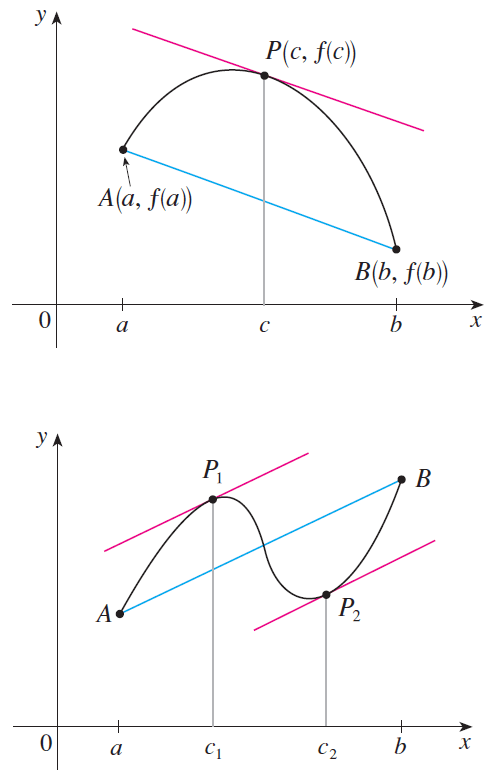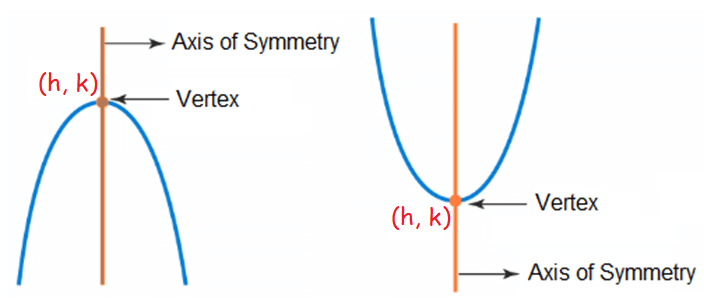INTEGRATION BY TRIGONOMETRIC SUBSTITUTION
Case 1 :
When an integration contains
substitute x = asinθ or x = acosθ.
Case 2 :
When an integration contains
substitute x = atanθ.
Case 3 :
When an integration contains
substitute x = asecθ.
The following trigonometric identities will be useful to evaluate an integral by trigonometric substitution.
sin2θ + cos2θ = 1
|
sin2θ = 1 - cos2θ |
cos2θ = 1 - sin2θ |
sec2θ - tan2θ = 1
|
sec2θ = 1 + tan2θ |
tan2θ = sec2θ - 1 |
cos2θ = cos2θ - sin2θ
|
|
|
Evaluate the following Integrals :
Example 1 :
Solution :
Comparing (a2 - x2) and (32 - x2), we get a = 3.
So, substitute x = 3sinθ.
Find the derivative of (x = 3sinθ) with respect to θ.
ᵈˣ⁄dθ = 3cosθ
dx = 3cosθdθ
|
When x = ³⁄₂, 3sinθ = ³⁄₂ sinθ = ½ θ = sin-1(½) θ = π/₆ |
When x = 3, 3sinθ = 3 sinθ = 1 θ = sin-1(1) θ = π/₂ |
Then, we have
Example 2 :
Solution :
Comparing (a2 - x2) and (22 - x2), we get a = 2.
So, substitute x = 2sinθ.
Find the derivative of (x = 2sinθ) with respect to θ.
ᵈˣ⁄dθ = 2cosθ
dx = 2cosθdθ
|
When x = 1, 2sinθ = 1 sinθ = 1⁄₂ θ = sin-1(1⁄₂) θ = π/₆ |
When x = √3, 2sinθ = √3 sinθ = √³⁄₂ θ = sin-1(√³⁄₂) θ = π/₃ |
Then, we have
2π/₃ = 120°
120° lies in the IInd quadrant.
In the IInd quadrant, sinθ is positive and the reference angle of 120° is 60°.
60° = π/₃
Therefore,
sin(2π/₃) = sin(π/₃)
Example 3 :
Solution :
Comparing (a2 + x2) and (32 + x2), we get a = 3.
So, substitute x = 3tanθ.
Find the derivative of (x = 3tanθ) with respect to θ.
ᵈˣ⁄dθ = 3sec2θ
dx = 3sec2θdθ
|
When x = √3, 3tanθ = √3 tanθ = √³⁄₃ θ = tan-1(√³⁄₃) θ = π/₆ |
When x = 3, 3tanθ = 3 tanθ = 1 θ = tan-1(1) θ = π/₄ |
Then, we have
Reduction Formula :
Example 4 :
Solution :
Comparing (x2 - a2) and (x2 - 52), we get a = 5.
So, substitute x = 5secθ.
Find the derivative of (x = 5secθ) with respect to θ.
ᵈˣ⁄dθ = 5secθtanθ
dx = 5secθtanθdθ
|
When x = 5√2, 5secθ = 5√2 secθ = √2 θ = sec-1(√2) θ = π/₄ |
When x = 10, 5secθ = 10 secθ = 2 θ = sec-1(2) θ = π/₃ |
Then, we have
Let u = tanθ.
ᵈᵘ⁄dθ = sec2θ
du = sec2θdθ
|
When θ = π/₄, u = tan(π/₄) u = 1 |
When θ = π/₃, u = tan(π/₃) u = √3 |
Kindly mail your feedback to v4formath@gmail.com
We always appreciate your feedback.
©All rights reserved. onlinemath4all.com
Recent Articles
-
The Mean Value Theorem Worksheet
May 14, 24 08:53 AM
The Mean Value Theorem Worksheet -
Mean Value Theorem
May 14, 24 02:48 AM
Mean Value Theorem -
How to Find the Vertex of a Parabola
May 12, 24 10:03 PM
How to Find the Vertex of a Parabola - Concept - Examples


